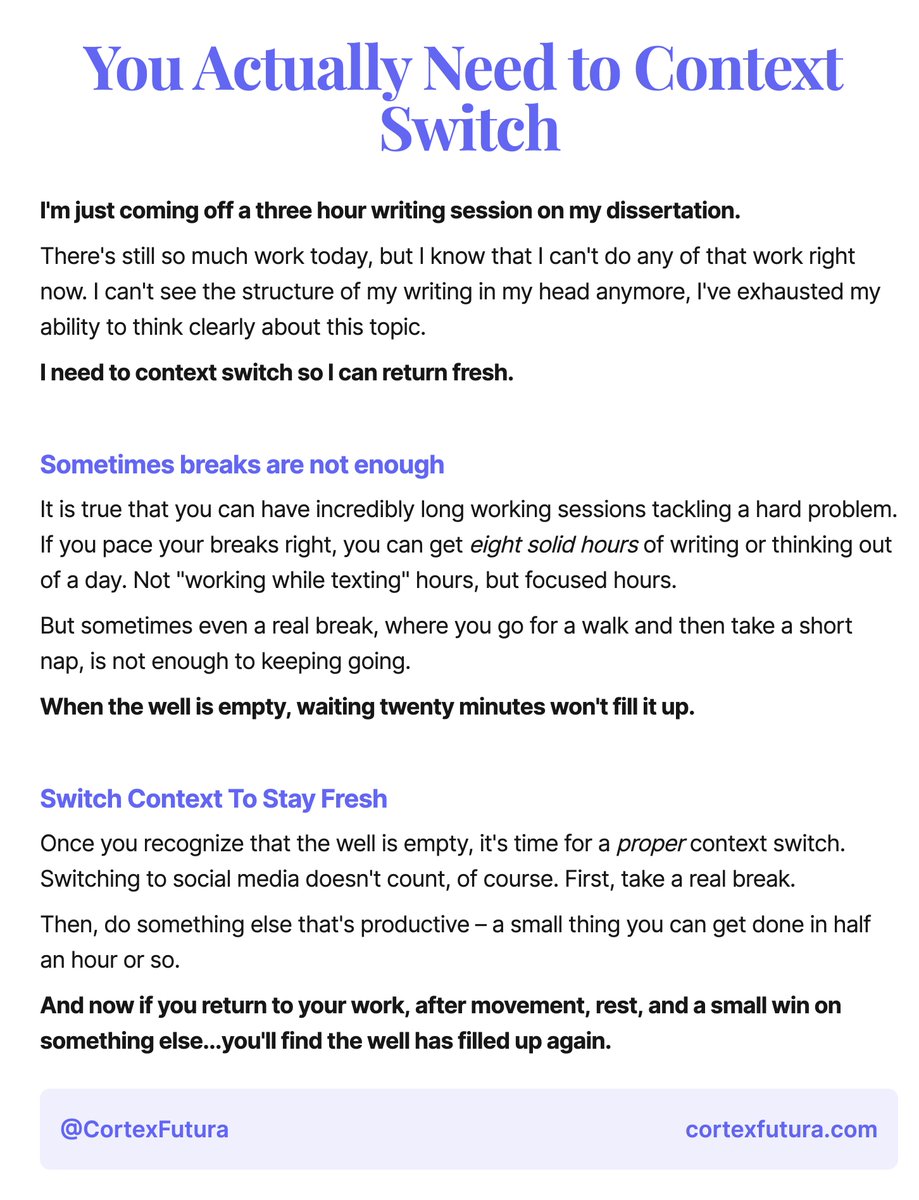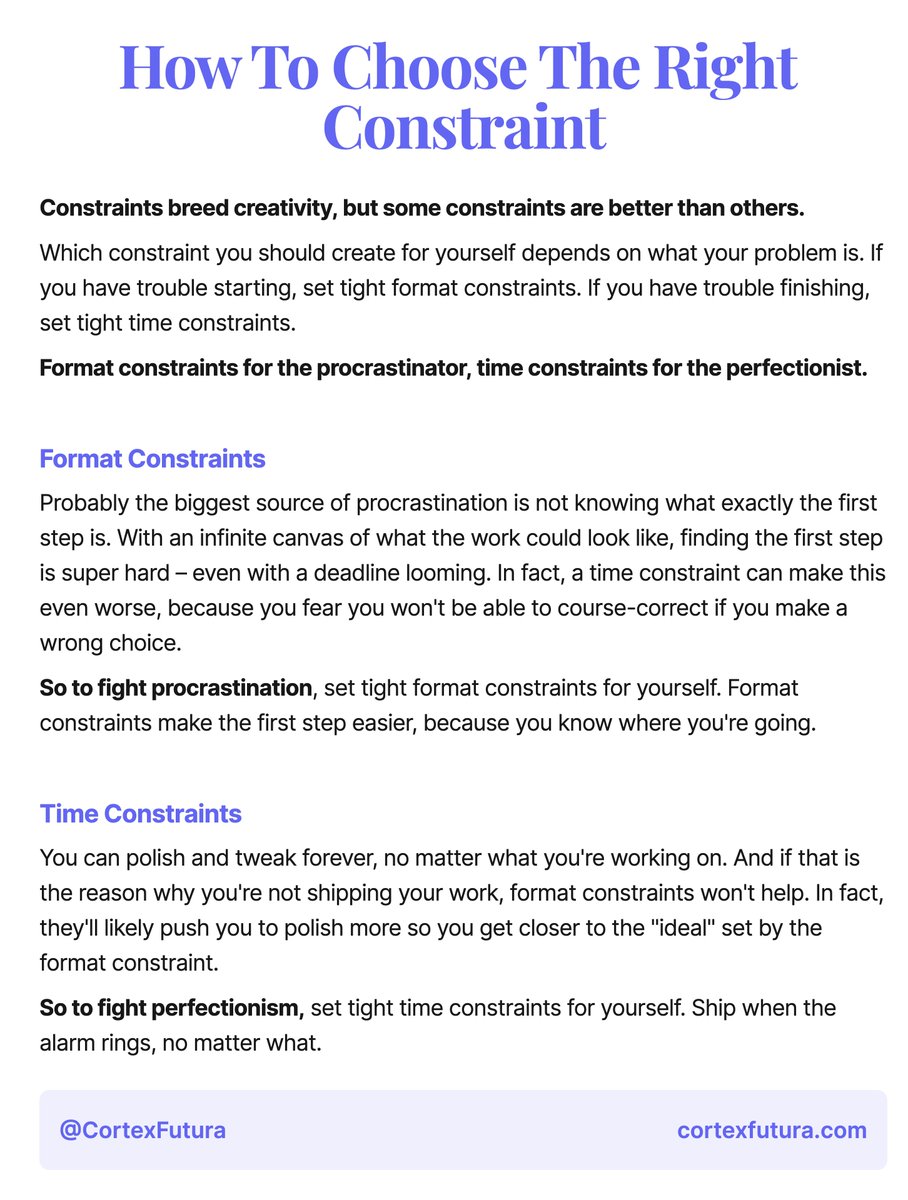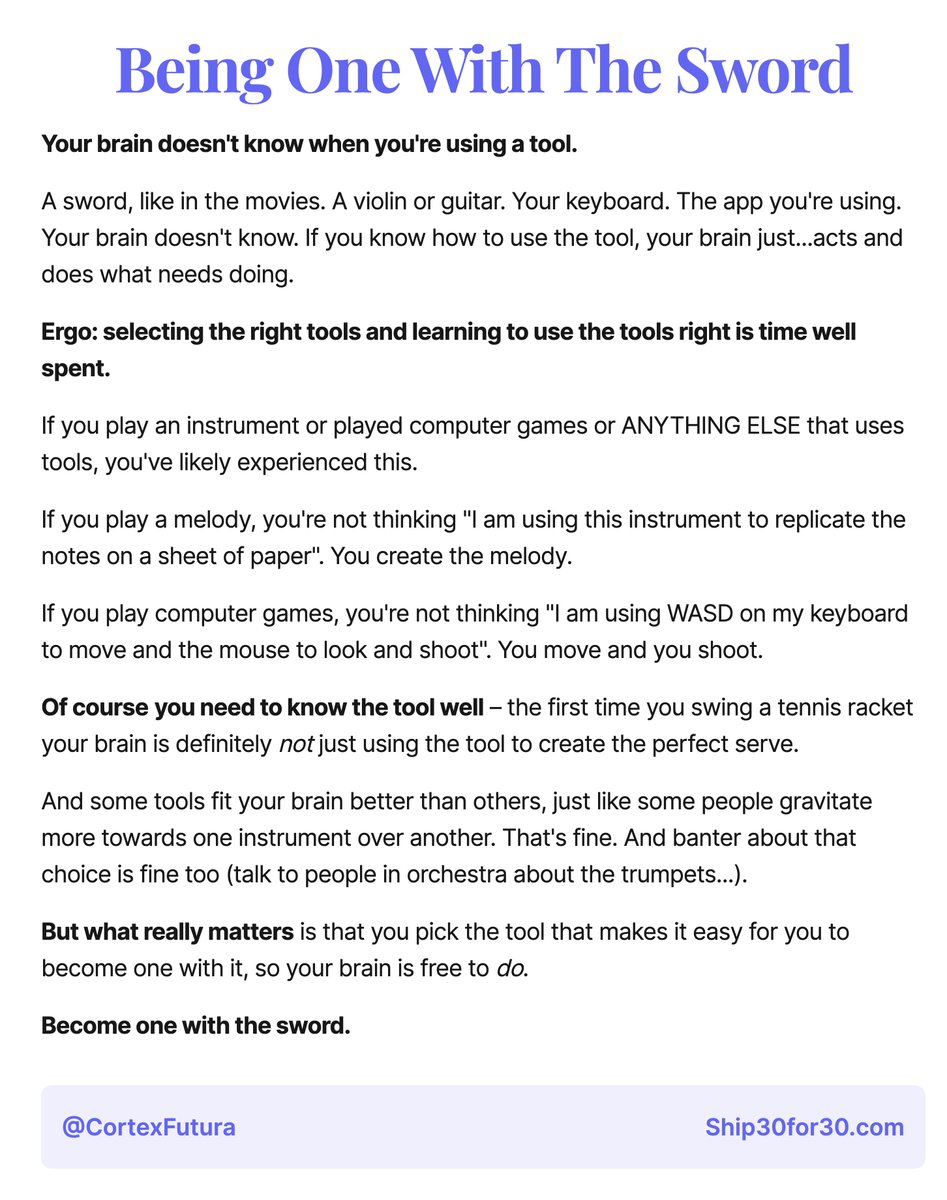
We all know that context switching is bad.
But after just writing three hours on my dissertation, I can tell you: sometimes you actually need to context switch to keep going.
Read on below 👇
But after just writing three hours on my dissertation, I can tell you: sometimes you actually need to context switch to keep going.
Read on below 👇

I'm just coming off a three hour writing session on my dissertation.
There's still so much work today, but I know that I can't do any of that work right now. I can't see the structure of my writing in my head anymore, I've exhausted my ability to think clearly about this topic.
There's still so much work today, but I know that I can't do any of that work right now. I can't see the structure of my writing in my head anymore, I've exhausted my ability to think clearly about this topic.
I need to context switch so I can return fresh.
Sometimes breaks are not enough
Sometimes breaks are not enough
It is true that you can have incredibly long working sessions tackling a hard problem. If you pace your breaks right, you can get eight solid hours of writing or thinking out of a day.
Not "working while texting" hours, but focused hours.
Not "working while texting" hours, but focused hours.
But sometimes even a real break, where you go for a walk and then take a short nap, is not enough to keeping going.
When the well is empty, waiting twenty minutes won't fill it up.
When the well is empty, waiting twenty minutes won't fill it up.
Once you recognize that the well is empty, it's time for a proper context switch. Switching to social media doesn't count, of course. First, take a real break.
Then, do something else that's productive – a small thing you can get done in half an hour or so.
Then, do something else that's productive – a small thing you can get done in half an hour or so.
And now if you return to your work, after movement, rest, and a small win on something else...you'll find the well has filled up again.
• • •
Missing some Tweet in this thread? You can try to
force a refresh









